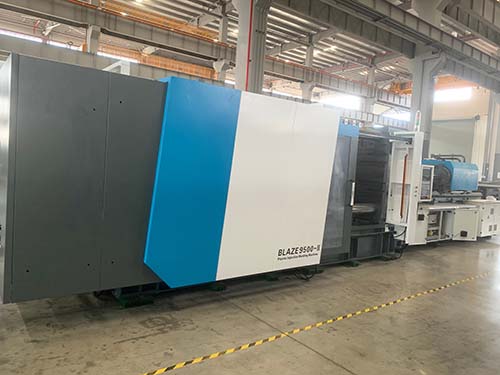Shaping the Future: Application of Injection Molding Machines with Specialized Materials in AI Device Manufacturing

In the rapidly advancing field of artificial intelligence (AI) technology, there is a growing demand for high-performance hardware. Injection molding machines, as efficient production equipment, play a crucial role in AI device manufacturing, especially when dealing with specialized materials. These materials include, but are not limited to, high-performance plastics, composite materials, and biodegradable materials, which meet the requirements of AI devices for temperature resistance, corrosion resistance, high strength, and lightweight properties. Let’s discuss the latest developments and application examples of injection molding machines using specialized materials in AI device manufacturing.

1、Role of Specialized Materials in AI Devices
1.1、Performance Enhancement: The use of high-performance plastics improves the durability and reliability of AI devices.
1.2、Weight Reduction: Employing lightweight materials enables AI devices to be more portable, particularly in the fields of mobile robots and wearable devices.
1.3、Environmental Friendliness: The use of biodegradable materials helps reduce electronic waste and promotes sustainability.
2、Technical Advantages and Challenges of Injection Molding Machines
2.1、Precise Control: Injection molding machines can accurately control injection pressure and speed, ensuring the quality of molded parts.
2.2、High Production Efficiency: They are suitable for large-scale production, meeting the market’s demands for the rapid growth of AI devices.
2.3、Specialized Material Adaptability: Overcoming processing difficulties associated with specialized materials, such as high melting points and rapid crystallization.
3、Application Examples of Specialized Materials in Specific AI Devices
3.1、Automated Robots: Illustrating how the application of enhanced plastics reduces energy consumption and prolongs the lifespan of robots.
3.2、Intelligent Sensors: Elaborating on the critical role of specialized materials in improving sensor sensitivity and accuracy.
3.3、Wearable Devices: Discussing the use of flexible materials to manufacture more comfortable and versatile wearable AI devices.
4、Case Studies Driving Innovation
Analyzing successful case studies of companies that leverage injection molding machines and specialized materials to address manufacturing challenges in AI devices, along with the market advantages resulting from these solutions.
5、Future Prospects
Predicting future trends in injection molding machine technology and specialized materials in the AI field, including potential new material developments, intelligent production processes, and the impact of environmental regulations on material selection.
6、Conclusion
As AI technology continues to advance, the demands for hardware devices are increasing. Injection molding machines demonstrate their exceptional capabilities in handling specialized materials for AI device manufacturing, enhancing product performance, and contributing to the industry’s sustainable development. In the future, with further technological optimization and the development of new materials, injection molding machines will play an even more significant role in AI device manufacturing.


